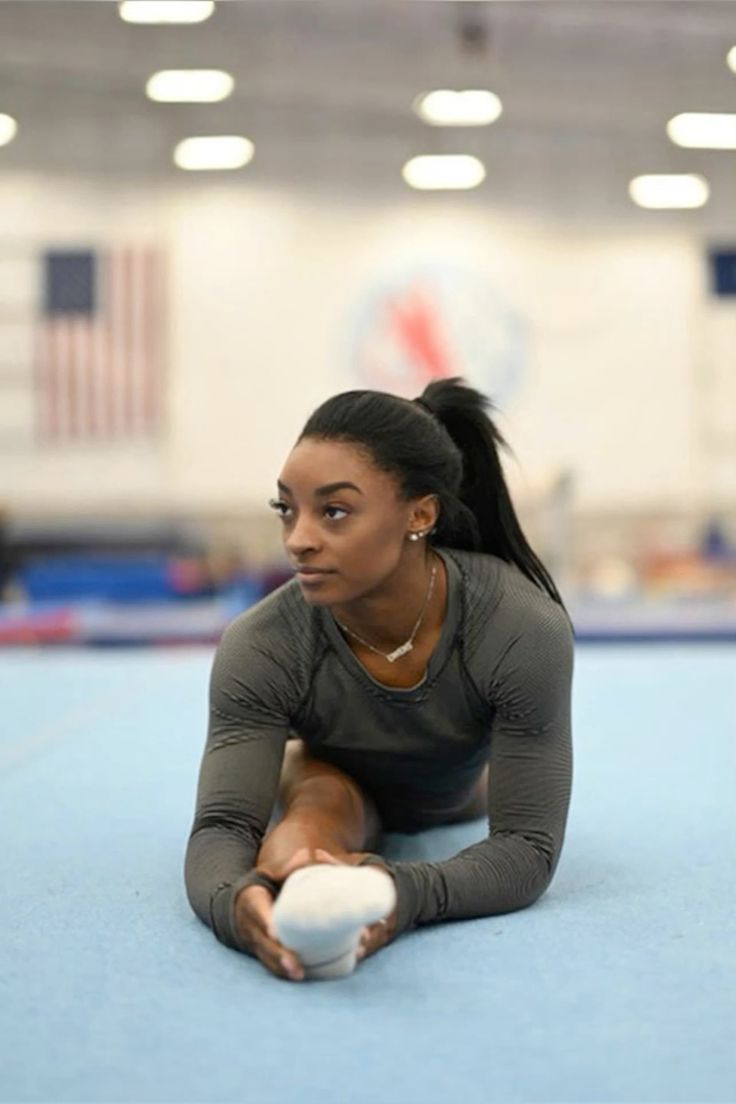
Simone Biles hasn’t ruled out competing in the 2028 Summer Olympics when the Games come to Los Angeles. Biles, 28, who previously said it would be “greedy” of her to compete in 2028, shared some insight on her thoughts about another Summer Olympics run while speaking in Buenos Aires, where the most decorated U.S. gymnast in history was being honored by the city’s mayor Jorge Macri.
“Everyone likes to talk about L.A. and what that road looks like for me,” Biles said. “So, currently, I am taking some time off from the gym because I think it’s really important that your physical health matches your mental health.” The gymnast said prioritizing her mental health was what helped her make history in Paris.
Simone Biles—a name synonymous with gymnastics greatness—has made it clear: she might still be in the running for Los Angeles 2028. But whether she’ll be flipping on the mat or cheering from the stands is still unclear. Between physical strain, mental health, and life outside the sport, Biles is considering her future carefully.
In this article, we’ll dig into her current status, what factors are influencing her decision, what the road to 2028 might look like, and what it would mean for gymnastics, for her fans, and for her legacy.
Simone Biles’ Olympic Legacy So Far
Simone Biles has already carved her name in history. With seven Olympic golds and eleven total Olympic medals, she is widely regarded as the most decorated gymnast ever. Her performances at multiple World Championships further underline her dominance.
Her comeback at the 2024 Paris Olympics was particularly powerful—not just for the medals she won (team, vault, all-around) but because she returned on her own terms, balancing competitive fire with her mental health.
What She’s Saying About 2028
Simone has made it very clear: she hasn’t made up her mind about competing in LA 2028. What we do know comes from interviews and public comments. Here are the key points:
Her Physical State
-
After the stress of Paris 2024, Biles said she “felt it,” noting that her body is aging.
-
She revealed that after Paris, she was sick for ten days; an elevator ride back to the village left her physically collapsed.
-
When asked about already aching after everyday activities like sprinting with friends, she didn’t shy away from admitting how much her body is carrying.
Mental Wellness and Personal Priorities
-
She’s spoken openly about needing her physical health to match her mental health. Without both aligned, she feels success is harder to sustain.
-
Biles mentioned enjoying life and time away—supporting her husband, living more like “just Simone” rather than always being “Simone Biles, the gymnast.”
-
She’s emphasized that for her to return to Olympic-level competition, it would “really have to excite” her. Ordinary isn’t enough if the costs (physical, mental, personal) are high.

The Pressure of Competing at Home
Competing in LA would mean doing so on “home soil,” with the eyes of the U.S. and the world close by. That’s a powerful draw:
-
The prestige of an Olympics in your country is tough to ignore—including family, fans, and media all showing up. It carries emotional weight.
-
But there’s also pressure: expectations are higher, scrutiny is magnified, and mistakes feel more public. Biles has noted before the toll that visibility and external expectations take.
Age, Injuries, and Gymnastics’ Physical Demands
Gymnastics is one sport where even slight degradation in physical capacity can make a big difference.
-
By the time of LA 2028, Biles will be 31. That’s above what many consider “prime” years in women’s gymnastics.
-
Injuries compound. Her post-Paris recovery and the lingering impact of events like the “twisties” in Tokyo showed how fragile the balance can be.
-
Training intensity over years does wear the body down; regeneration becomes slower. Biles herself has pointed out that she can’t just ignore pain or fatigue.
Options if She Chooses to Return
If Simone Biles does decide to aim for LA 2028, it doesn’t have to mean doing everything. Here are the paths she could take:
Full Return vs. Specialist Role
-
All-Around Competitor: Compete in every event—vault, floor, beam, bars, etc. This is what she’s known for. But it demands huge physical and mental commitment.
-
Specialist: Focus on one or two apparatuses. Perhaps vault or floor—areas where she’s particularly exceptional. This reduces training load and risk of injury. Could be a strategic way to participate without full commitment.
Reduced Events or Select Competitions
-
Maybe she competes in select international events or world championships as preparation but scales back at other times to preserve her health.
-
Or she could target only certain types of events in LA (e.g., only individual apparatus finals).
What Fans & Media Are Saying
The reaction has been mixed—but largely supportive:
-
Many fans are hopeful: they want to see her compete again (especially at home), but many also want what’s best for her well-being.
-
Media outlets are curious, speculative. They’ve raised questions about age, whether it’s “greedy” to return, whether she’ll regret staying away. Some coverage has framed the decision as monumental—because to many, it already is.
-
Biles has often been clear she doesn’t want to make decisions based solely on what others expect; she’s quoted wanting internal motivation, enjoyment, alignment between body and mind.
Possible Scenarios & Timeline Leading to LA 2028
Let’s imagine what the road could look like, depending on her choices:
| Scenario | Timeline | Key Milestones |
|---|---|---|
| Opting out entirely | 2025–2026 | Formal retirement announcement; fewer competitions; more advocacy or role outside sport |
| Return as Specialist | 2025–2027 | Focused training for selected apparatus; compete in world events; time off for recovery; strategic decisions about which events to enter in LA |
| Full All-Around Attempt | 2025–2028 | High intensity training; qualifying events; managing injuries; psychological readiness; big buildup toward LA |
She might announce something preliminary by 2026 or 2027—giving herself time to test how her body responds.
What Retirement Might Look Like
If she decides not to compete, there are paths forward:
-
Becoming a mentor, coach, or commentator
-
Advocacy—especially around mental health in sports
-
Taking roles in Olympic committees, sports leadership
-
Leaving a legacy of not just medals, but bravery in choosing what’s right for oneself
Why This Decision Matters More Than Medals
This isn’t only about gold or legacy; it’s about:
-
Mental health normalization: Biles has already impacted the way elite athletes talk openly about pressure, anxiety, the cost of perfection.
-
Athlete sustainability: How long can even the best bodies sustain elite performance? Her decision could shape how future gymnasts plan their careers.
-
Inspiration: Either path—returning or stepping back—can send powerful messages. That it’s okay to put self first. That legacy doesn’t hinge solely on constant competition.
Conclusion
Simone Biles is at a crossroads. On one side lies the lure of a home Olympic Games in Los Angeles, a chance to add to her legacy in glorious fashion. On the other, very real costs—physical wear and tear, mental health, personal life, and the weight of expectations.
She hasn’t ruled out competing in 2028. But she’s also making it clear: for her to return, it won’t be about what others want—it has to excite her; her body, mind, and priorities all have to align.
No matter what she decides, her impact isn’t going anywhere. Whether on the mat or in the stands, Simone Biles is already one of the greatest, and she’s shown all of us what courage looks like—even when the hardest decision might be to say “no.”